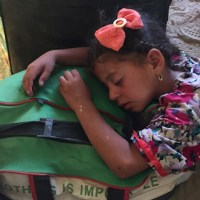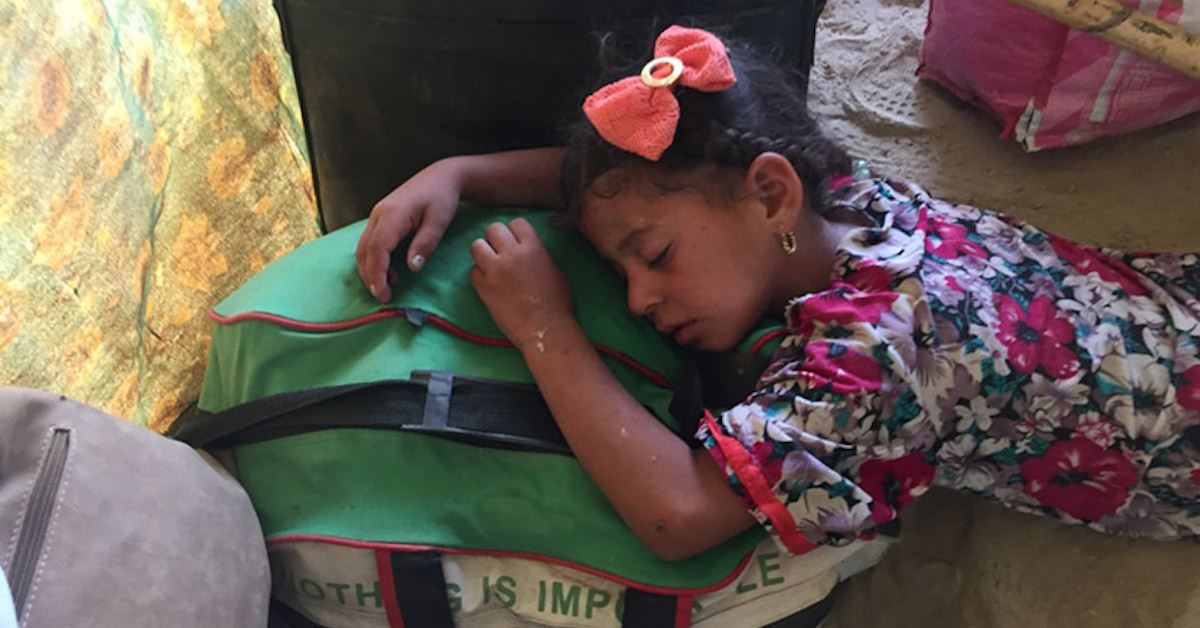The temperature is 102° F (39° C) with a hot wind that pushes the sand into every bit of exposed skin—it cakes around the nose and eyelashes. It’s cooler than it was earlier in the week—“cooler” being a relative term in Fallujah—but still feels brutal after walking miles to safety.
When the Iraqi army opens up a “safe corridor” to allow Fallujans to get out, there is no time to worry about the heat—it is simply time to run.
Five hundred families arrive to a field of sand, miles west of Fallujah, with only a few bits of trash breaking up the expanse.
There are no tents.
There is no water.
Earlier families running from ISIS have exhausted the supply. But they are told that this “safe” place is for them, and so they stop.
They sleep as best they can in the open that first night, lying on the sand, remembering the sound of sniper fire and explosions, and wonder what “safe” means.
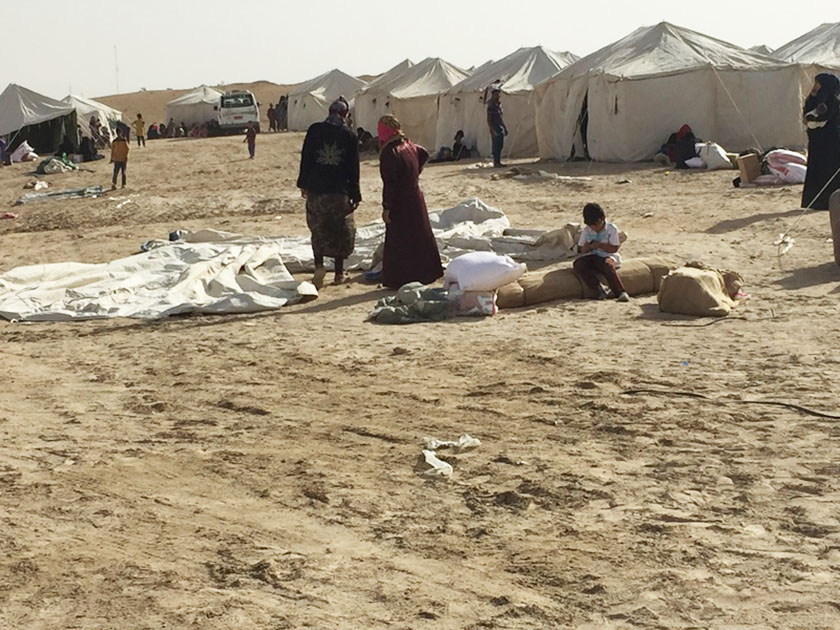
This is what our team in Baghdad found when they visited the overwhelmed camp west of Fallujah a few days ago. After weeks of preparing and delivering food, they realized they were staring a true emergency in the face.
So they called our headquarters and told us about the profound need, the urgent hunger.
We asked if it was possible to pack the trucks overnight and return the next morning with more food and with cooking stoves—knowing the amount of work it takes, knowing our team is already exhausted.
“Yes we can!” came their answer.
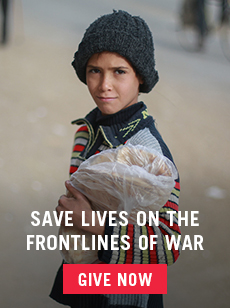
The team returned just as the tents were starting to go up. As the food you bought was unloaded, a camp was built up around them.
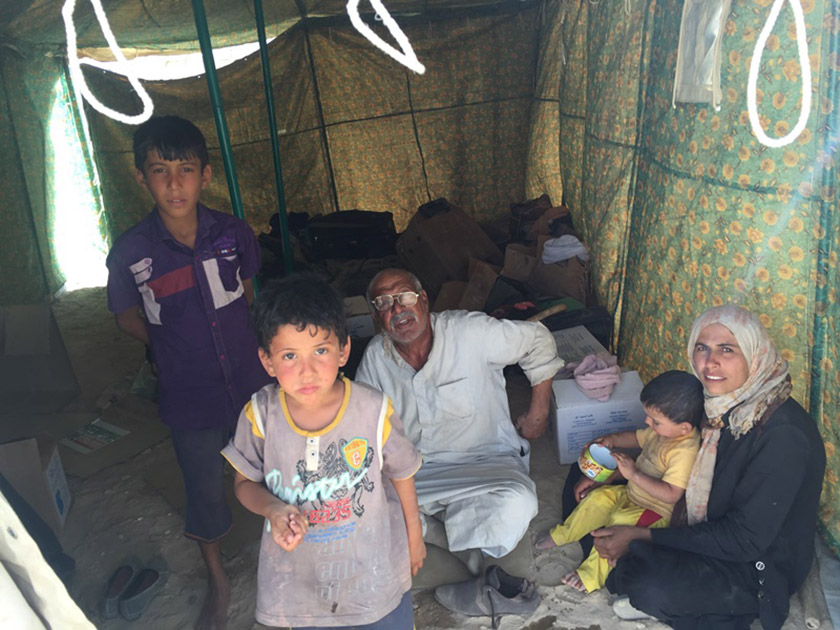
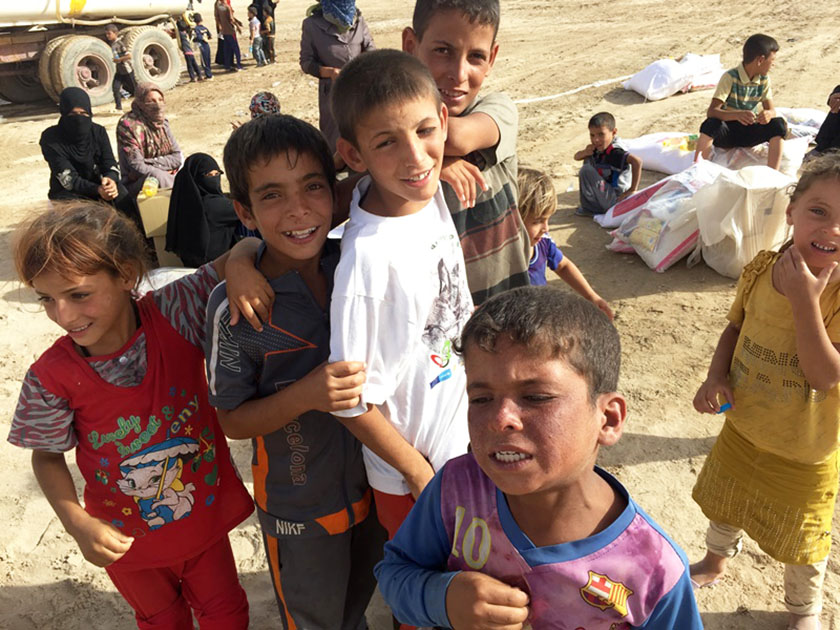
Our team has seen so much brutality, so many people suffering. They are exhausted from pushing so hard. Many of them are fasting for Ramadan. Yet they keep going back. They keep saying yes. They keep pushing to get aid out where it’s most needed as fast as possible.
Nevertheless, this note reached our office after the distribution:
“I don’t know why, but the team are extremely happy this time. I guess the size of the crisis and the fact that they managed to help made them very emotional.”
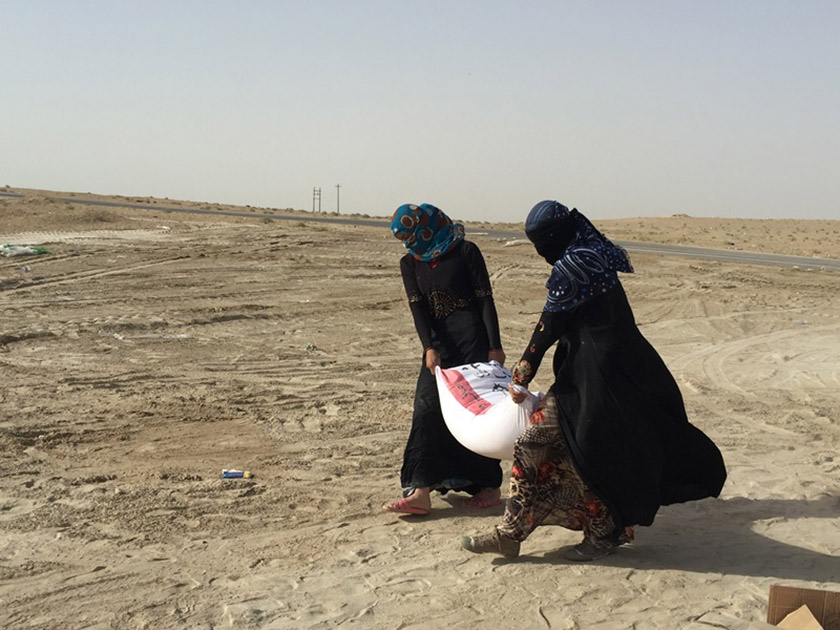
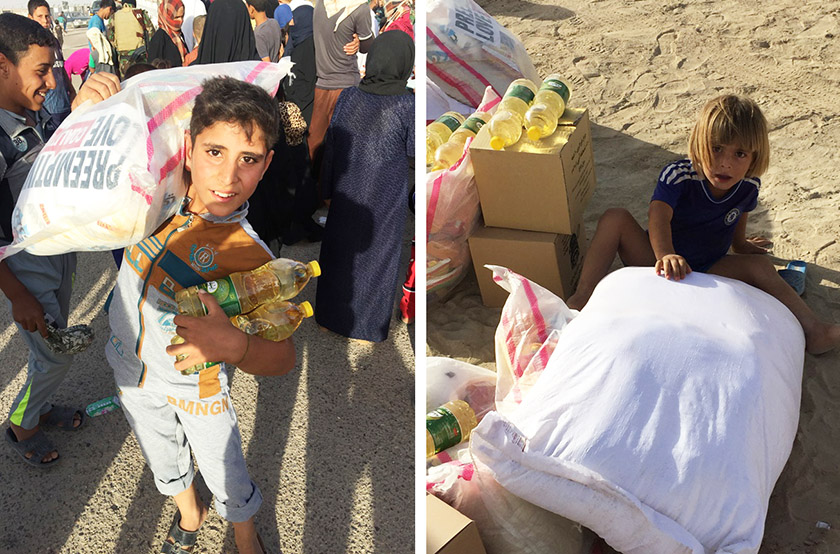
Maybe it was exhaustion talking. Maybe was the scale of the crisis, and the fact that they are able to bring help quickly. But whatever the reason, this delivery was special.
It’s a few days later now. Families have a canvas roof over their heads. They go to sleep with full bellies. They still struggle to sleep; they are still haunted by the memory of sniper fire and explosions. But today they feel a little more safe.
More than 82,000 people have now fled Fallujah—many of them in the last few days—overwhelming displacement camps around the city. We are continuing to respond with urgent aid for children and families. Please continue to stand with the people of Fallujah.

